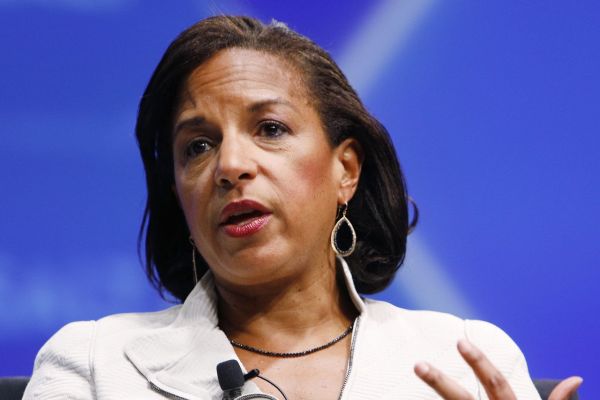As U.S. ambassador to the United Nations, Rice assisted the Biden administration in expanding the Affordable Care Act. Susan Rice, an advisor on domestic policy, is resigning from her position.
As U.S. ambassador to the United Nations, Rice assisted the Biden administration in expanding the Affordable Care Act, approving his Inflation Reduction Act, and enacting gun control legislation.
The action comes amid controversy surrounding the White House’s treatment of migrant children who crossed the southern border.
In a statement announcing Susan’s departure, President Joe Biden said,
“As the only individual to have served as both National Security Advisor and Domestic Policy Advisor, Susan’s public service record is unprecedented.” “What distinguishes her as a leader and colleague, however, is the seriousness with which she approaches her role, the urgency and tenacity she brings, her bias toward action and results, and the integrity, humility, and humor with which she approaches her work.”
Rice’s departure leaves a significant void in the White House’s upper ranks as the administration prepares for a likely re-election campaign and confronts congressional Republicans over raising the debt limit.
Neera Tanden, Biden’s staff secretary and a senior adviser, is being considered as a replacement for her, according to four sources with knowledge of the discussions who spoke to POLITICO. Separately, a senior White House official stated that no replacement had yet been chosen.
One former administration official reported that White House aides openly discussed Tanden’s potential appointment to Rice’s position over the weekend, describing her potential appointment as “pretty damn firm.”
Rice served as U.N. ambassador at the start of the Obama administration before becoming national security adviser during Obama’s second term in office. Rice has headed the Domestic Policy Council of the White House since the beginning of the Biden administration.
Biden stated,
“My appointment of Ambassador Susan Rice as my domestic policy advisor surprised many.” “Susan was synonymous with foreign policy, having served as National Security Advisor and UN Ambassador in the past.”
But what I knew then and what we all know now, after more than two years of Susan Rice’s steady leadership of the Domestic Policy Council, is that no one is more capable and determined to get essential things accomplished for the American people than Susan Rice.
Rice, whose background was almost exclusively in foreign policy, oversaw a historic two-year period of legislative activity that included the passage of a major Covid-19 relief bill, a bipartisan infrastructure overhaul, and last year’s Inflation Reduction Act, which included $369 billion to combat climate change and reduced the cost of prescription drugs for seniors.
Biden also signed numerous executive orders regarding climate change, healthcare, gun safety, and student loans during her tenure.
However, the administration’s approach to the U.S.-Mexico frontier and its inability to stop an influx of asylum-seeking migrants who have overwhelmed border agents have left the president vulnerable to Republican attacks on the issue.
The White House is planning to terminate Title 42, a strict Trump-era border policy decried by many Democrats, within the next month, but officials, including Rice, have argued that this is necessary to prevent another influx of migrants at the southern border.
Rice has been instrumental in the administration’s strategy for replacing Title 42, which will be unveiled later this week.
A recent New York Times article portrayed her and other senior officials as dismissive of concerns that child migrants were being exploited during the administration’s haste to process a record number of unaccompanied minors at the southern border in early 2021. The White House disputes this depiction.
Rice’s departure is the most recent high-level reorganization within the White House’s policy apparatus, following the earlier departures of National Economic Council Director Brian Deese and Council of Economic Advisers Chair Cecilia Rouse.
After replacing Ron Klain in early February, chief of staff Jeff Zients is also relatively new to his position.
People familiar with the deliberations stated that elevating Tanden would similarly enable them to quickly fill the vacancy atop the Domestic Policy Council.
Tanden also has experience managing a large policy operation, having previously led the influential progressive think tank Center for American Progress and worked extensively on health care and other domestic priorities as a senior health official in the Obama administration.
In late 2020, Biden selected Tanden to lead his Office of Management and Budget. However, her nomination halted due to opposition from Republicans and Sen. Joe Manchin (D-W.Va.) over her history of antagonistic tweets directed at GOP politicians and policies.
Since then, however, Tanden has maintained a diminished public profile, and the top domestic policy position would not require Senate confirmation.
Also Read: Kelly Price’s Partner, Spouse, Children, And Parents





